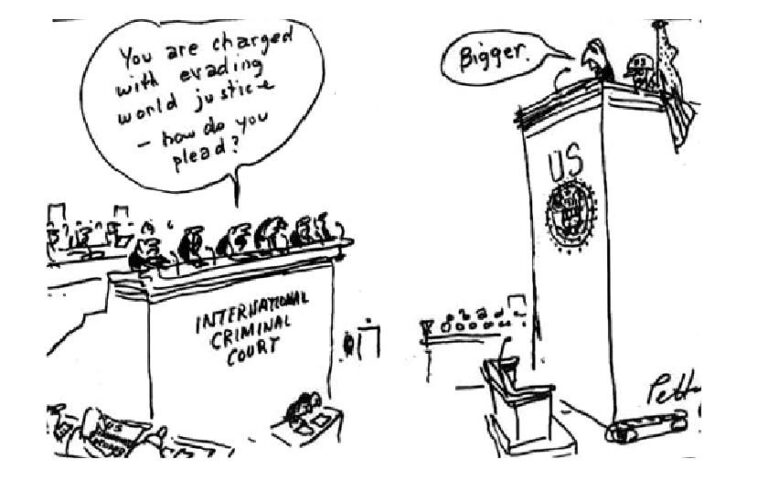Negotiations aimed at defining and prosecuting the crime of aggression have hit a significant roadblock, with France, the United Kingdom, and Canada reportedly blocking progress in recent discussions. The impasse raises new challenges for the international community’s efforts to hold state leaders accountable for acts of aggression under international law. As Opinio Juris reports, the standoff underscores the complex geopolitical and legal considerations surrounding this contentious issue.
France United Kingdom and Canada Stall Progress in Crime of Aggression Negotiations Impacting International Justice Efforts
Recent diplomatic impasses have emerged as France, the United Kingdom, and Canada have taken a firm stance against advancing pivotal reforms in the ongoing negotiations concerning the crime of aggression. Their reluctance has effectively stalled critical conversations aimed at defining and enforcing accountability for acts of aggression at the international level. This gridlock undermines efforts to fortify the International Criminal Court’s (ICC) mandate, leaving a gaping void in the global justice architecture and frustrating advocates who champion robust mechanisms to deter unlawful military incursions.
Key consequences of this diplomatic deadlock include:
- Delayed adoption of clear legal frameworks defining the threshold for aggression crimes.
- Diminished credibility of international justice institutions perceived as vulnerable to political pressures.
- Hindered cooperation between ICC members, complicating investigations and prosecutions.
| Country | Position on Negotiations | Impact |
|---|---|---|
| France | Calls for cautious approach | Slows consensus on aggression definition |
| United Kingdom | Advocates for sovereign discretion | Blocks binding jurisdiction expansion |
| Canada | Seeks political safeguards | Complicates enforcement protocols |
Analyzing the Political and Legal Motivations Behind the Blockade on Crime of Aggression Discussions
The decision by France, the United Kingdom, and Canada to stall discussions on the crime of aggression at the International Criminal Court exposes a complex web of political and legal interests. These states, each with significant military capacities and geopolitical influence, appear wary of setting precedents that could limit their strategic autonomy. By blocking consensus, they underscore concerns about how an expansive definition of aggression might expose their leaders and armed forces to international scrutiny or litigation, undermining their diplomatic leverage.
Beyond diplomatic caution, legal apprehensions also play a pivotal role. These nations argue that existing international law lacks clear criteria to differentiate legitimate defense or humanitarian interventions from criminal acts of aggression, risking arbitrary prosecutions. Key points fueling the blockade include:
- Ambiguity in defining the threshold of “aggression”
- Potential misuse of the ICC for political motivations
- The challenge of balancing state sovereignty with accountability
- Concerns over dual standards in international justice enforcement
| Country | Primary Legal Concern | Strategic Motivation |
|---|---|---|
| France | Vague aggression criteria | Maintain freedom in military operations |
| United Kingdom | Risk of politicization of ICC cases | Preserve diplomatic influence |
| Canada | Ensuring due process safeguards | Protect sovereign decision-making |
Recommendations for Breaking the Deadlock Enhancing Cooperation and Advancing Accountability Mechanisms
To move past the persistent stalemate, open diplomatic channels must be prioritized that foster genuine dialogue among all concerned states, particularly France, the United Kingdom, and Canada. Engaging neutral mediators with expertise in international criminal law could pave the way for renewed discussions void of political pressure. Additionally, leveraging multilateral forums to build coalitions around shared values of justice and accountability will be essential in reshaping the narrative and breaking down entrenched positions.
In parallel, establishing a transparent and inclusive framework for oversight can enhance the legitimacy of accountability mechanisms. This includes:
- Independent monitoring bodies with clearly defined mandates to assess compliance.
- Regular public reporting on negotiation progress and obstacles.
- Incentive structures encouraging diplomatic cooperation without compromising judicial integrity.
| Recommendation | Action Point | Expected Outcome |
|---|---|---|
| Neutral Mediation | Appoint experts outside political influence | Revitalized trust in negotiations |
| Transparent Reporting | Publish bi-annual negotiation briefs | Enhanced public engagement and pressure |
| Incentive Structures | Link cooperation to international aid & trade benefits |
Recommendations for Breaking the StalemateKey Approaches:
– Independent monitoring bodies with clear mandates. | Recommendation | Action Point | Expected Outcome | If you’d like, I can help you with more detailed text, additional recommendations, or turning this into a formal policy document or presentation. Let me know! Insights and ConclusionsAs negotiations on the definition and prosecution of the crime of aggression face renewed obstacles, the opposition from France, the United Kingdom, and Canada signals deep-seated geopolitical complexities at play. Their refusal to endorse current proposals underscores ongoing divisions within the international community over how to effectively hold states accountable for acts of aggression. With these key players standing firm, the path toward a universally accepted framework remains uncertain, leaving the future of international criminal law and global security in a state of heightened tension and unpredictability. Opinio Juris will continue to monitor developments as the debates evolve. |




